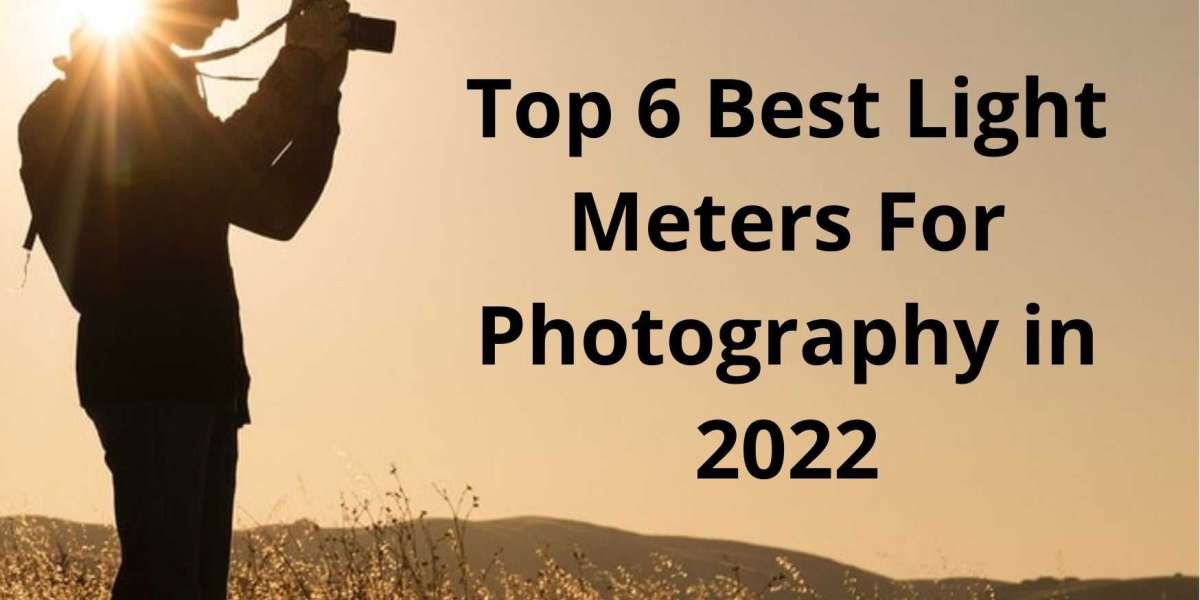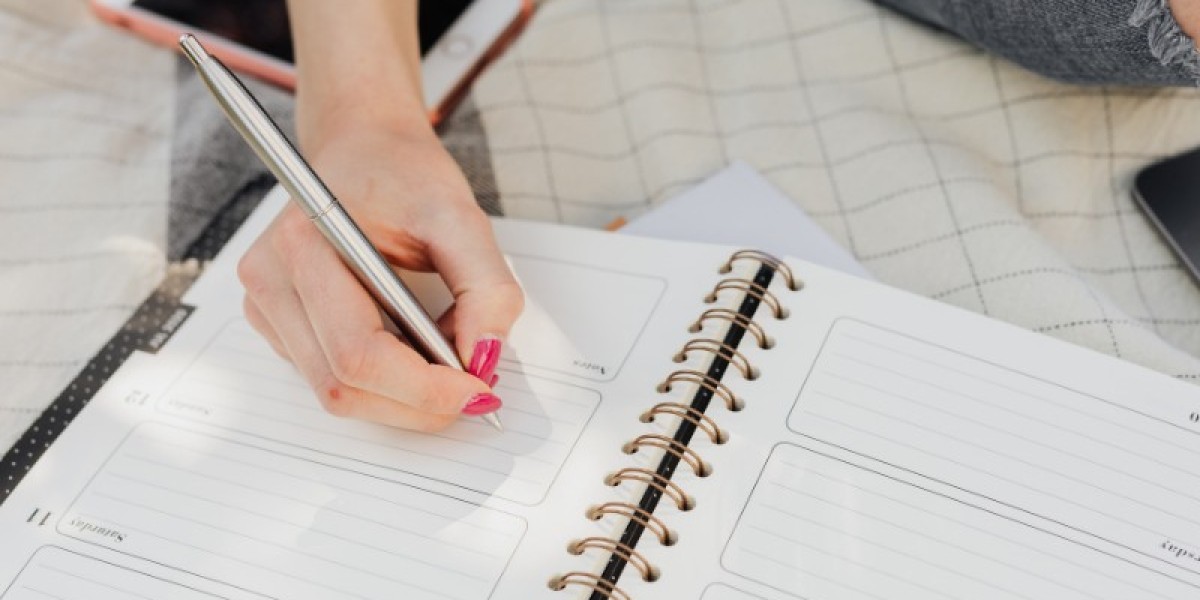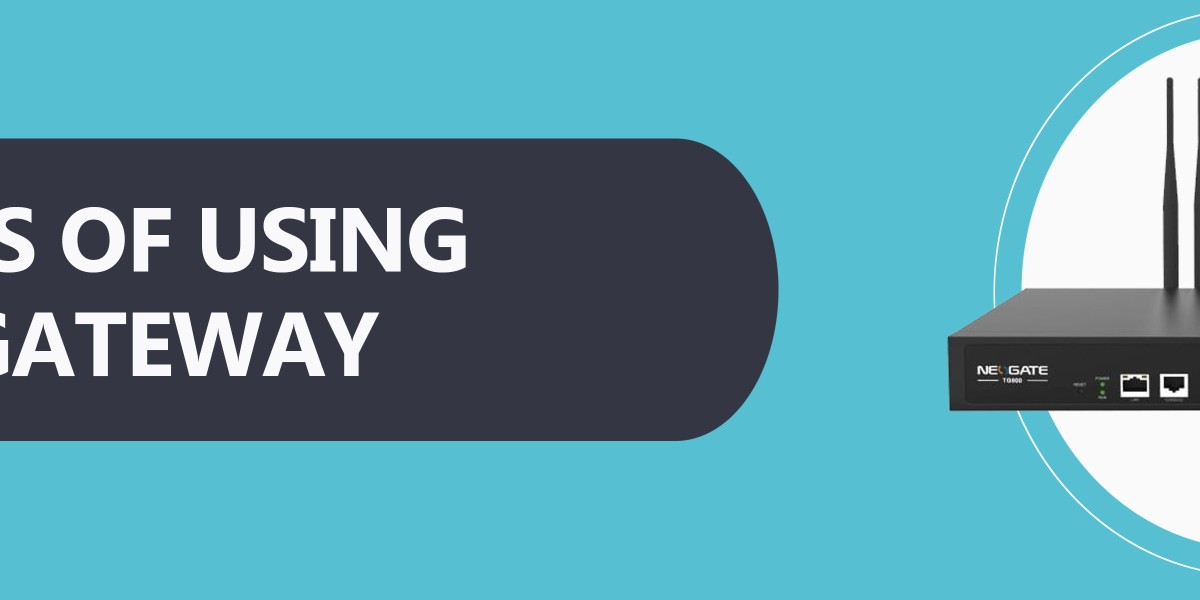There is something else to photography besides getting a camera and snapping a photograph. Photographers should think about lighting, separating, and object position before they can even ponder taking a photo. Photographic artists must also have the right equipment to catch the ideal picture. This incorporates a light estimating gadget known as a light meter. Light meters are important to photography; anybody associated with photography should know what they are and their significance in the field.
What is a light meter?
Basically, a light meter is a gadget that actions light. There are two various types of light meters-incident and reflection. An incident light meter estimates all the light falling onto a subject. Incident light meters assist a camera with zeroing in regarding a matter paying little heed to how light or dull the encompassing background is. Reflective light meters do the inverse they measure the light reflected by or bobbing off a subject.
Role light meters play in photography
Light meters are very valuable tools in photography. Basically, light meters assist picture takers with catching the ideal picture tone. These light estimating devices assist photographic artists with knowing whether a piece of a picture is overexposed or underexposed. There are explicit kinds of photography where light meters can be especially valuable, including landscape and portrait photography. So, here are some best light meters for photography for a perfect snapshot.
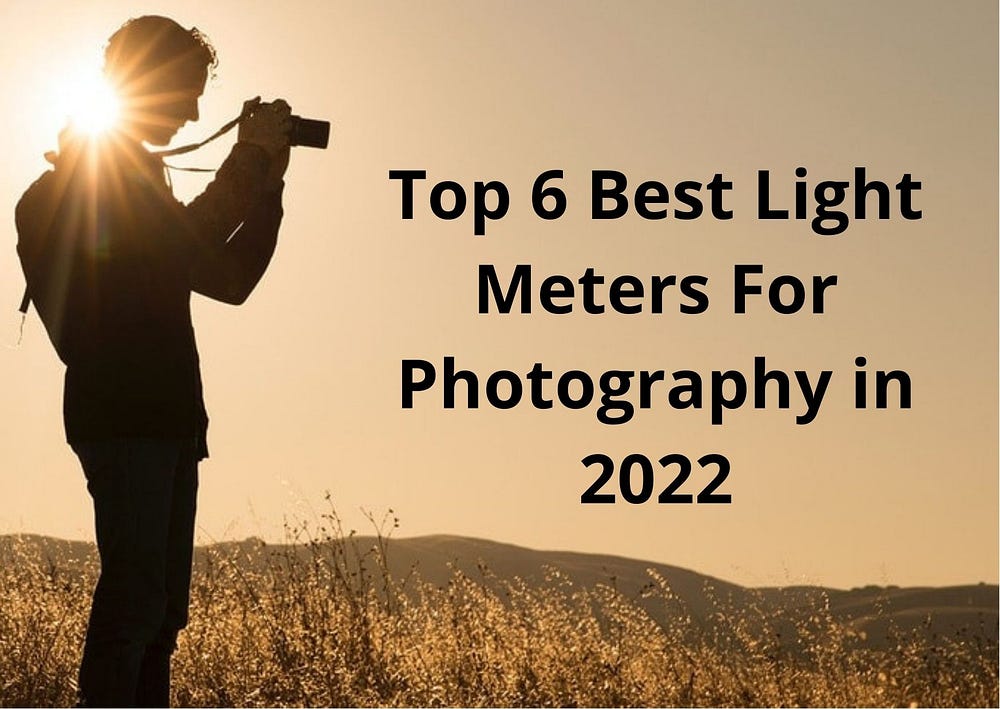
Let’s talk about each in-depth.
1) Sekonic LiteMaster Pro L-478DR-U Light Meter With Exclusive USA Radio Frequency
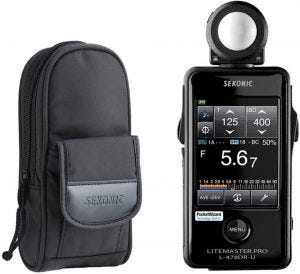
My top pick for the best photography light meter of 2021 has to be the Sekonic LiteMaster Pro. Thanks to the large 2.7-inch touchscreen you have plenty of control over the unit. At ISO 100, this unit can operate between -2 to 22.9 EV range and it also pairs with video cameras thanks to the Cine and HD Cine modes. These allow shutter angles of 1 to 358 degrees as well as a frame rate of up to 1000 fps.
Built into the unit is a radio antenna and module that allows both flash control as well as light metering up to 30 meters away. And you can buy with confidence thanks to the 3-year warranty included with each purchase.
2) Dr.Meter 1330B-V Digital Illuminance/Light Meter, 0–200,000 Lux Luxmeter
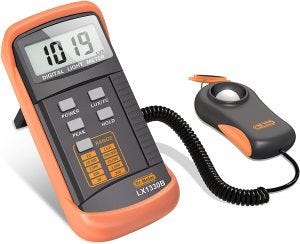
For budget-minded shoppers, the Dr. Meter is hard to beat. At only $40.99 it provides excellent functionality at only 1/10th the cost of high-end designs. Four range settings; 0–200, 2,000, 20,000, and 200,000 allow you to customize the sensitivity and accuracy of your readout.
Depending on the sensitivity chosen, you have ±3% accuracy from 0–20,000 lux and ±5% once you are over 20,000 Lux of intensity. Each unit also includes a 1-year warranty.
3) Sekonic L-308S Flashmate Digital Incident, Reflected Flash Light Meter
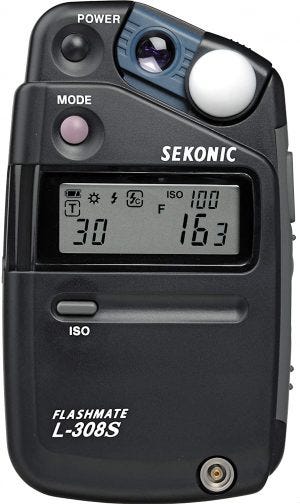
Weighing in at a svelte 96 grams and using a single AA battery, this is one of the lightest professional light meters available. And certainly the smallest Sekonic Light Meter available!
Light is sampled on a non-retractable lumisphere that, when open, measures reflected light, and when closed, samples incident (ambient) lighting. A flat top llumidisk also allows you to measure incident lighting on flat surfaces. Exposure readings are displayed in full, half, or 1/3rd stop increments and the unit is accurate to within 0.1 EV.
The ISO range is from 3 to 8,000 and it can read an f/stop range of f/0.7-f/90, as well as shutter speeds of 1/8000ths-60 seconds. At ISO 100, this unit can operate between 0 to 19.9 EV range. The only real disadvantage is the plastic construction, which feels cheap, but helps make the unit both light and affordable.
4) Sekonic L-398A Light Meter Studio Deluxe III
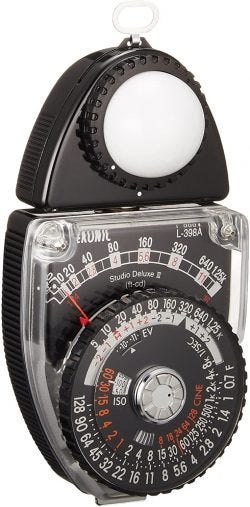
With its analog display meter needle and dial that displays the full range of exposure settings, the Sekonic L-398A is a compact, easy-to-use unit that’s stylish as well as effective. You have the option of using a lumidisk for measuring light intensity in a given area or switching to a lumigrid for reflected light readings, similar to how an in-camera light meter measures incoming illumination.
Another of the main draws of this unit is that it uses no batteries whatsoever! Instead, it relies on the light it measures for power, using a photoelectric cell to provide continual energy. The ISO values range from 6 to 12,000 in 1/3rd step increments and the shutter speeds range from 1/8000ths-60 seconds. Lastly, aperture values can be read from f/0.7 to f/128 and cine frame rates of 8 to 128 fps.
5) Gossen GO 4033–2 Digipro Light Meter F2
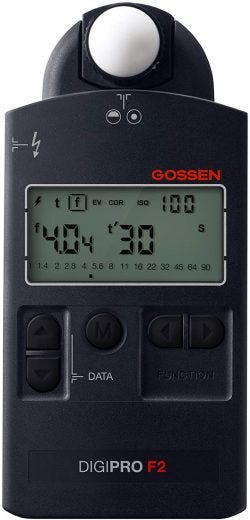
The Gossen GO is the perfect beginner’s light meter thanks to its simple, intuitive interface! The directional arrows on the front of the unit allow for both left and right-handed operation, with a central M button for light metering.
Capable of reading both reflected and incident lighting, the Gossen GO has an aperture range of f/1 to f/90, shutter speed sync range of 1/1000ths-1 second, and an ISO range of 3.2–8000. For videography, select the shutter speed function and set it beyond 1/8000ths of a second.
Unfortunately, the build quality isn’t quite what we’d expect for the price as the Gossen GO favors plastic over metal. But in terms of straightforward functionality, intuitiveness, and size, it’s hard to beat this model!
6) Sekonic Speedmaster L-858D-U Light Meter
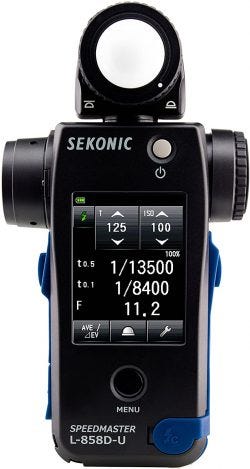
What makes the Speedmaster L-858D-U special is that it can meter accurately in light conditions as low as 0.1 Lux. Being as sensitive as it is, it has extended ISO values (up to ISO 13,107,200) and shutter speed ranges, making this the low light meter of choice for cinematography.
It also can measure the duration of your flash as well as high-speed sync strobes, which is extremely useful for freezing the action in high-speed photography. With a maximum shutter speed of 1/16,000ths of a second, this unit is ideal for a variety of flash scenarios!
Along with Aperture and Shutter Priority modes, the Speedmaster L-858D-U also includes ISO priority, giving you full flexibility for metering. While pricier than the rest, this is my top pick for the best light meter for photography!
